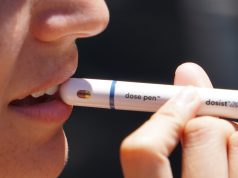Content Notice: This story discusses topics including sexual assault and harassment. If you have been impacted by sexual assault, the National Sexual Assault Hotline is available for assistance at 1-800-656-HOPE (4673) or online.rainn.org.
Pharmaceutical company, ViiV Healthcare, recently funded $8 million in refocusing HIV/AIDS prevention and treatment for Black women in the United States. Their “Risk to Reasons” initiative is the largest philanthropic investment of its kind in U.S. history.
While HIV and AIDS cases have declined since their development, Black women are still disproportionately affected by the virus.
In 2021, Black women in Miami-Dade County were about 12 times more likely than white women to contract HIV, according to the Florida Department of Health.
Marc Meachem, head of external affairs in North America for ViiV, suggests this is due to a lack of research and representation of the demographic.
“HIV has been portrayed as primarily a white gay issue, and many [Black women] don’t perceive themselves to be at risk,” Meachem says. “Our overarching goal is to make sure that no one affected by HIV is left behind.”
The funds will improve research and outreach; as well as offer education to medical professionals and social workers on how to offer inclusive care. The funds were also split between 17 organizations and companies across the country, including two South Florida nonprofits Positive People Network (PPN) and Community Health and Empowerment Network.
Shawn Tinsley, 50, is an African American woman and member of PPN who tested positive for HIV in 1989, during the peak of the epidemic. Tinsley waited in denial for three years after the diagnosis to finally seek treatment, when she learned she was pregnant with her second child.
“There was really no information,” Tinsley says. “I just went on my way as though they had lied to me, because I thought, ‘I’m not gay or a man.’”
Meachem hopes the initiative will extinguish this narrative by educating medical professionals and social workers on proper risk reduction language.
“Organizations will look at the diversity and inclusion issues within their groups to see whether there are sufficient voices from the communities most impacted,” Meachem says. “Even with providers, some women have even been dissuaded from taking PrEP [pre-exposure prophylaxis].”
PrEP is a highly effective medicine to prevent getting HIV.
Tinsley faced a similar situation when she was first tested in her hometown of Newark, NJ.
“I grew up in the hood, so I was concerned for my safety. But the hospital pretty much said, ‘We doubt you’ll see tomorrow,” Tinsley says. “They didn’t have any type of compassion.”
Tinsley also believes her community faces setbacks such as a lack of long term research and discourse on prevention efforts.
”The medicine has come a long way… but we need more research for the Brown and Black community on what these treatments do to our bodies in the long term,” Tinsley says.
To avoid this, ViiV’s funding will ultimately amplify and connect Black advocates with neighborhoods that lack resources for treatment, prevention, and support.
“People like to hear things from people they trust, those within their own communities,” Meachem says. “The messages are in the messengers.”

































